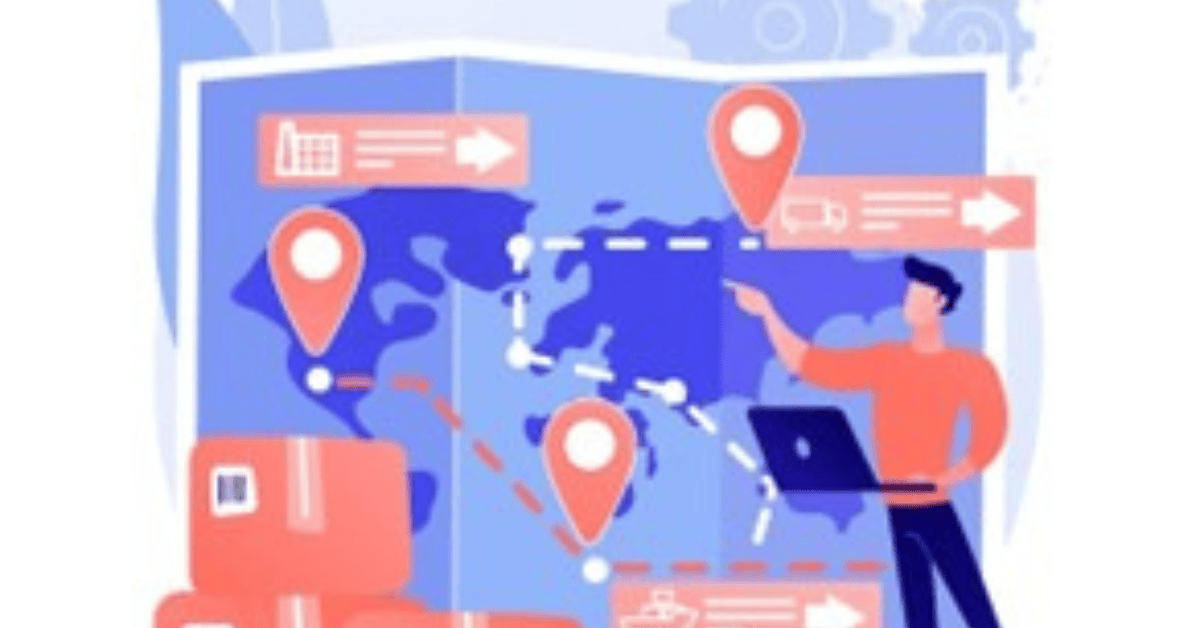Contact: +91 99725 24322 |
Menu
Menu
Quick summary: Explore the intricate world of supplier mapping within traceability in our latest blog. Uncover how this strategic process enhances transparency, mitigates risks, and ensures compliance in your supply chain. Dive into the realm of TraceX solutions, unraveling the key role they play in optimizing supplier mapping for a resilient and efficient business ecosystem.

In the fast-paced and intricately connected realm of modern supply chains, achieving transparency and traceability demands a sophisticated approach. Supplier Mapping, a cornerstone in this pursuit, is not merely a conceptual tool but a technological marvel that reshapes how organizations view and manage their supply networks.
This blog dives into the technical intricacies of Supplier Mapping, exploring its profound importance, key components, and the transformative role it plays in enhancing traceability with a cutting-edge digital approach.
Supplier Mapping, in essence, is a digital canvas that captures the intricate relationships, dependencies, and flows within a supply chain. Leveraging advanced technologies, it provides a real-time, dynamic visualization of the entire network, facilitating an unprecedented level of understanding and control.
The evolving landscape of supply chain visibility hinges on technological prowess. Supplier Mapping becomes the digital eyes and ears of an organization, allowing for proactive decision-making, risk mitigation, and optimal operational efficiency.
The digital transformation of Supplier Mapping begins with cutting-edge algorithms and artificial intelligence (AI) systems that not only identify suppliers but also classify them based on intricate criteria. Machine learning models can adapt and evolve, refining the classification process over time.
Determining inclusion criteria is no longer a manual task. Machine learning algorithms can analyze vast datasets to establish dynamic criteria that adapt to the ever-changing landscape of supply chain dynamics, considering factors like supplier reliability, quality metrics, and environmental sustainability.
The backbone of modern Supplier Mapping lies in advanced technology solutions. Cloud-based platforms, powered by robust data analytics engines, not only store supplier information but also provide predictive analytics, allowing organizations to anticipate supply chain disruptions and take pre-emptive actions.
Digital platforms are not just repositories; they are dynamic ecosystems where data-driven insights fuel strategic decisions. Integration with the Internet of Things (IoT) devices and sensors ensures real-time data feeds, creating a responsive and agile Supplier Mapping infrastructure.
Implementing Supplier Mapping software involves orchestrating a symphony of technologies. Blockchain, with its decentralized and immutable ledger, can enhance data security and integrity, ensuring that the information captured within the Supplier Mapping system is tamper-proof.
Blockchain’s role extends beyond security; it ensures the integrity of the entire product journey. Smart contracts on a blockchain can automate traceability processes, triggering actions based on predefined criteria, thereby streamlining the end-to-end traceability journey.
Advanced analytics, powered by machine learning, can predict potential risks based on historical data, supplier performance metrics, and external factors. This proactive risk management approach goes beyond traditional methods, ensuring that organizations stay ahead of the curve.
Technological solutions such as data validation algorithms and blockchain-based consensus mechanisms can address the perennial challenge of data accuracy. By decentralizing data verification, organizations can enhance the trustworthiness of the information stored within their Supplier Mapping systems.
Resistance from suppliers can be mitigated by showcasing the tangible benefits of Supplier Mapping. Blockchain’s transparency can assure suppliers that their data is secure, and machine learning algorithms can demonstrate how collaboration within the digital ecosystem improves overall supply chain efficiency.
The synergy between Supplier Mapping and product-level traceability is not just about data sharing; it’s about creating an interconnected ecosystem. Application Programming Interfaces (APIs) ensure seamless communication between Supplier Mapping systems and product traceability platforms, fostering a holistic approach to traceability.
Smart contracts, powered by blockchain, can automate compliance checks. By encoding regulatory requirements into smart contracts, organizations can ensure that their Supplier Mapping systems adhere to global standards without manual intervention.
Interoperability standards, such as those established by industry consortia, can further enhance the effectiveness of Supplier Traceability. Machine-readable standards ensure that data from diverse suppliers can be seamlessly integrated into a unified Supplier Mapping ecosystem.
Drones, IoT devices, and satellite imagery can be integrated into Supplier Mapping systems to monitor and verify sustainable practices of suppliers. This not only ensures compliance with sustainability goals but also provides verifiable data for stakeholders.
Blockchain’s transparent and immutable nature becomes a beacon of ethical sourcing. It ensures that the entire supply chain, from raw material extraction to end product delivery, adheres to ethical standards, fostering corporate social responsibility.
Quantum computing, edge computing, and 5G connectivity are emerging as the next frontier in Supplier Mapping. Quantum algorithms can process vast datasets exponentially faster, while edge computing ensures real-time responsiveness in data analysis, and 5G facilitates seamless connectivity across the supply chain.
The evolution of Supplier Traceability is intrinsically tied to technological advancements. Predictive analytics, driven by machine learning, will evolve into prescriptive analytics, providing organizations with actionable insights that not only predict potential issues but also recommend optimal courses of action.
In conclusion, Supplier Mapping is not just a concept but a dynamic intersection of technology and strategy. From advanced algorithms and artificial intelligence to blockchain and IoT, Supplier Mapping transforms supply chain visibility into a digital frontier where organizations can navigate with precision. As we delve into the technical mastery of Supplier Mapping, it becomes evident that it is not merely a tool; it is the avant-garde of supply chain management. Embracing these technological advancements is not just a choice; it’s a strategic imperative for organizations aspiring to thrive in the digital era of supply chain excellence. Supplier Mapping, with its technical prowess, becomes the compass guiding organizations through the complexities of modern supply chains, ensuring they chart a course toward a future defined by technological innovation and traceability mastery.
